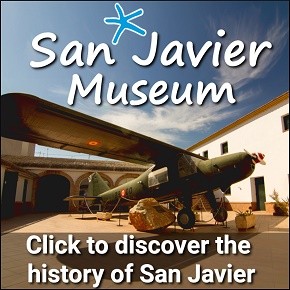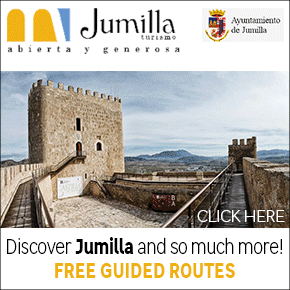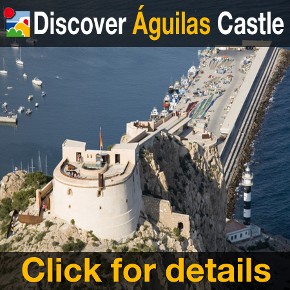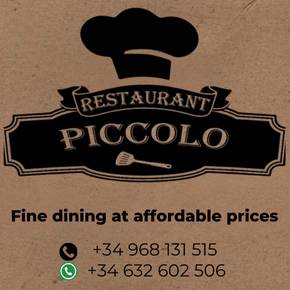The Cerro de la Cruz walking route in Zarzadilla de Totana
A mountain walk for all the family in the north Lorca countryside
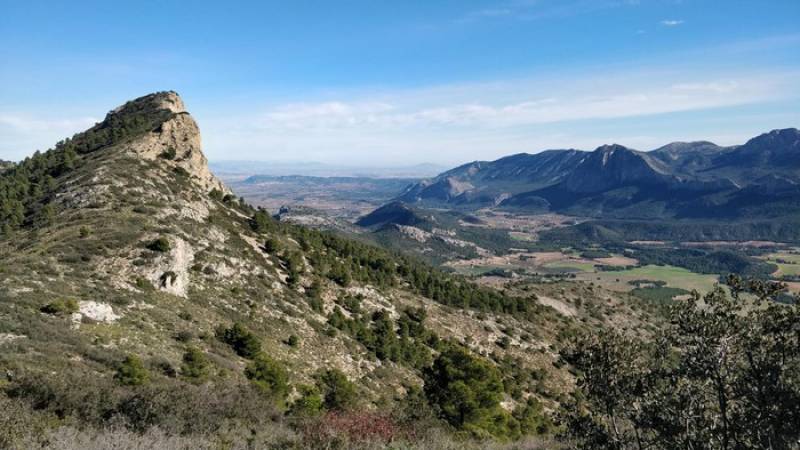 Zarzadilla de Totana is a village in the “Tierras Altas” area of the vast municipality of Lorca, on the high ground between Lorca to the south and Bullas, Caravaca de la Cruz and Cehegín to the north. It nestles at the foot of the mountains of Sierra de Pedro Ponce, one of the most mountainous areas of Lorca, and takes its name from the abundant “zarza” plants (brambles) which characterize the local vegetation, but it is also home to plenty of vines, pines and almond trees.
Zarzadilla de Totana is a village in the “Tierras Altas” area of the vast municipality of Lorca, on the high ground between Lorca to the south and Bullas, Caravaca de la Cruz and Cehegín to the north. It nestles at the foot of the mountains of Sierra de Pedro Ponce, one of the most mountainous areas of Lorca, and takes its name from the abundant “zarza” plants (brambles) which characterize the local vegetation, but it is also home to plenty of vines, pines and almond trees.
It is in this context that the local tourist board has named the “Cerro de la Cruz” route as an ideal choice for family groups looking for a day out and wonderful views from the hills and mountains, and the 6.5-kilometre route starts at the “Los Grifos” washhouse and the Los Olivos park, where there are various very old olive trees. After a kilometre walkers leave the tarmac and follow an uphill track to the right before reaching an altitude of 974 metres after 2 km.
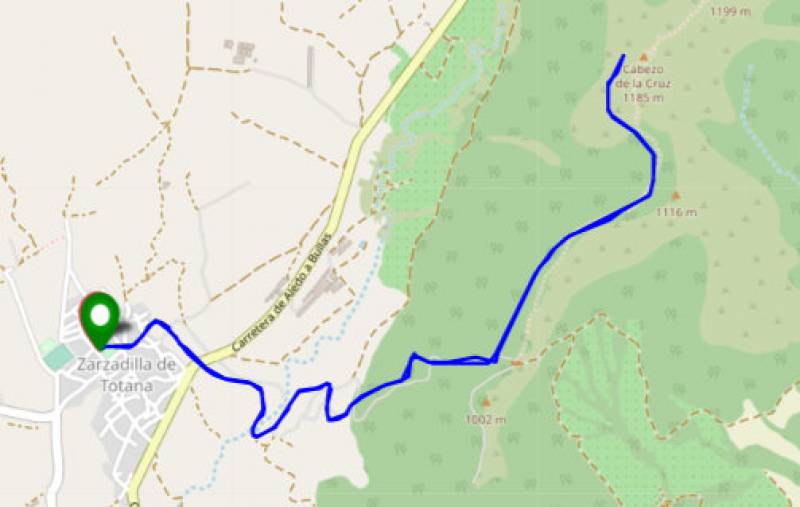 From here a well-maintained path on the left leads up to the top of the Cerro de la Cruz at 1,185 metres above sea level, surrounded by pine trees but with great views clear through the foliage. To the north it is possible to see the Sierras del Madroño, Pedro Ponce and Cambrón and to the south the northern slopes of Sierra Espuña, including the Morrón de Espuña y Pedro López and most of the highest points in the Region of Murcia.
From here a well-maintained path on the left leads up to the top of the Cerro de la Cruz at 1,185 metres above sea level, surrounded by pine trees but with great views clear through the foliage. To the north it is possible to see the Sierras del Madroño, Pedro Ponce and Cambrón and to the south the northern slopes of Sierra Espuña, including the Morrón de Espuña y Pedro López and most of the highest points in the Region of Murcia.
At this point the path continues towards Peñarrubia but for inexperienced and younger walkers the advice is to turn back here!
For more local activities, events, news and visiting information go to the home page of Lorca Today.
Oficina de Turismo de Lorca

The rich and extensive history of Lorca has left a legacy of archaeological sites, and historic buildings, around which the modern city has built its tourism industry. Among these are Lorca Castle, the Jewish quarter of the castle and synagogue, Plaza de España, Colegiata de San Patricio, Museo de Arqueologico Municipal, Iglesia de San Francisco, Casa Huerto Ruano, Palacio de Guevara, Iglesia de San Mateo, Pósito de los Panaderos, Convento Virgen de las Huertas, Antiguo Convento de la Merced, Iglesia del Carmen and the Teatro Guerra.
 Unfortunately Lorca has also been prone to natural disaster, suffering a Gota Fría on September 28th 2012, as well as two earthquakes measuring 5.3 and 5.5 on the Richter scale on 11th May 2011, claiming 9 lives. Since this earthquake the city has been rebuilding, winning recognition for its Lorca, Open for Restoration initiative, which used the restoration of the city as a tourist attraction whilst it rebuilt its historical buildings, some of which are currently still not open.
Unfortunately Lorca has also been prone to natural disaster, suffering a Gota Fría on September 28th 2012, as well as two earthquakes measuring 5.3 and 5.5 on the Richter scale on 11th May 2011, claiming 9 lives. Since this earthquake the city has been rebuilding, winning recognition for its Lorca, Open for Restoration initiative, which used the restoration of the city as a tourist attraction whilst it rebuilt its historical buildings, some of which are currently still not open.
The tourist office relocated for 14 years to Calle San Patricio, near the church, but has now returned to its former premises alongside the Palacio de Guevara in the Plaza Concha Sandoval, or Plaza de la Bordadora (click for map).
Lorca also has an area of coastline incorporating the Parque Regional de Cabo Cope - Puntas de Calnegre, in the Sierra de Almenara, which includes the beaches of Puntas de Calnegre, Baño de las Mujeres, San Pedro, El Siscal, Cala Honda, Cuartel del Ciscar, Junquera, Cala de la Gruta, Cala Leña, Los Hierros, Cala Blanca and Playa Larga, although many are accessible only along difficult tracks or by boat!

However, in spite of its many attractions, the name of Lorca is synonymous with Easter, (Semana Santa) its biblical parades of International Tourist Interest status and famous throughout Spain. The week includes a series of processions in which the Whites (Paso Blanco) and Blues (Paso Azúl) try to outdo each other with the magnificence of their embroideries and the skill and daring of their horsemen.
Lorca also has a Parador hotel, located within the historic castle.
Opening hours for Lorca tourist office:
Every day of the year apart from 1st and 6th January and 25th December, 10.00 to 14.00 and 16.30 to 18.30 (except Sunday afternoons).
These opening times are often extended and other information points created during the Semana Santa celebrations.
For more local news, events and visiting information go to the home page of Lorca Today























